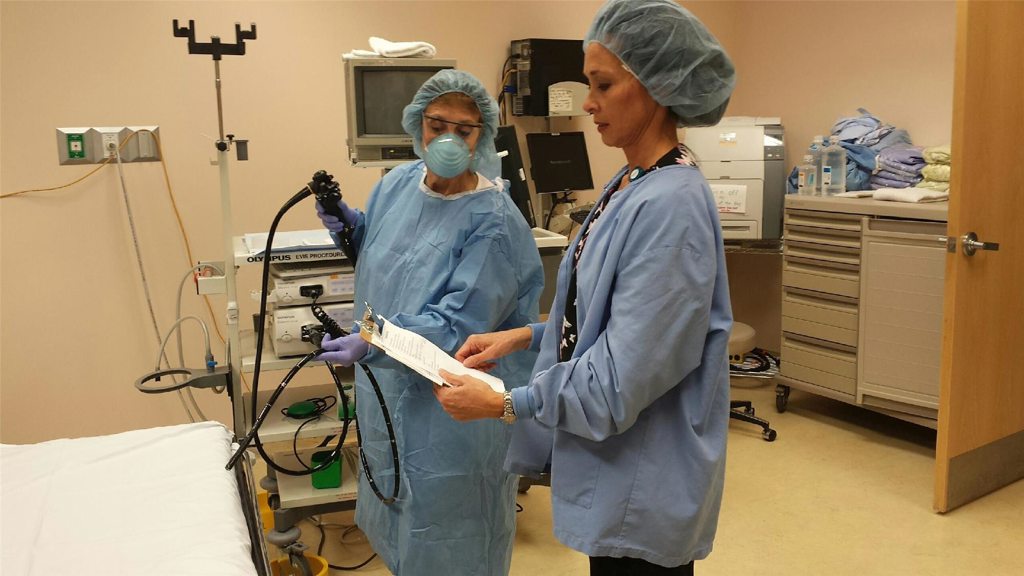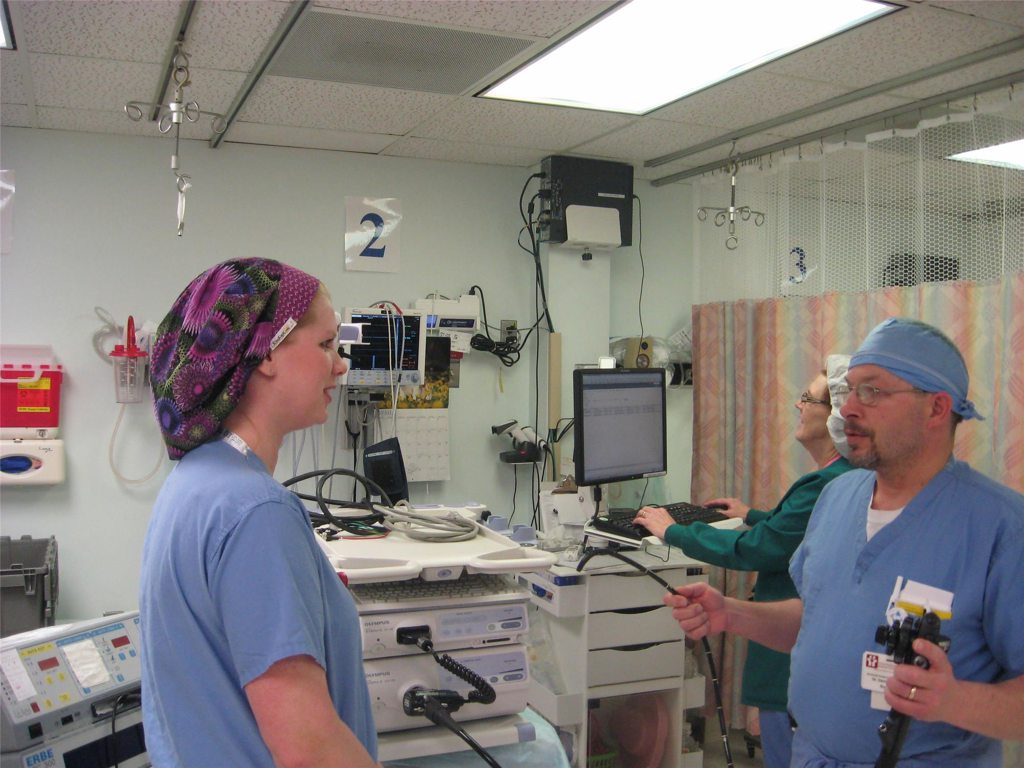
Colonoscopies Save Lives
Despite its high incidence, colon cancer one of the most preventable cancers. If it’s found early, it is easily treatable. And screening is the number one way you can reduce your risk of colon cancer.
Colorectal cancer occurs in the colon or rectum and is sometimes called colon cancer. The colon is the large intestine or large bowel. The rectum is the passageway that connects the colon to the anus.
According to the Centers for Disease Control, everyone aged 50 years or older should have regular screening tests. And there are those who are under age 50 with risk factors.
Dr. Maofu Fu, medical oncologist at the Nathaniel D. Yingling, M.D., Cancer Center in Clearfield said those at risk for colon cancer include those over age 50 and/or familial history of colon cancer or polyps, or inflammatory bowel disease; smoking, physical inactivity, high-fat and/or low-fiber diet, alcohol intake, as well as inadequate consumption of fruits and vegetables.
The screening doesn’t sound like fun to a lot of people. It exposes a private area, and the preparation involves using a laxative to empty out the colon.
But it saves lives. At least 60 percent of deaths from this cancer could be avoided with a colonoscopy screening.
“Colonoscopies allow us to find polyps which are small growths on the inside of the colon which research has proven to be what can grow to cause colon cancer. We are able to remove those small polyps before they ever have the chance to become a colon cancer,” Jeanine Root, nurse practitioner, who works with Penn Highlands Gastroenterology.
Screenings are painless and simple. A doctor – usually a surgeon or gastroenterologist – uses a very thin scope to look at the inside of the rectum and bowels, and the doctor can remove polyps as they are found.
So why don’t people schedule theirs?
“People most commonly express concerns about pain or the sedation itself,” Root said.
“It does not hurt,” she said. “Patients receive sedation through an IV, administered by a certified nurse anesthetist, which allows them to be completely asleep during the procedure.”
If a polyp is removed “the nerves in the intestines are different from the skin and can be pinched and you never feel them,” Dr. Daniel Perri, general surgeon at Penn Highlands Brookville, said.
Also, the patient is always breathing on his or her own. There is no breathing tube inserted into the airway; the medication used wears off very quickly and patients are normally able to go home about an hour after the procedure has been completed, Root said.
Maybe some people are reluctant about the preparation.
The preparation before the colonoscopy is sometimes what people think is the worst part of the whole procedure. The patient must drink a large amount of liquid that will cause them a lot of diarrhea. “The preps have gotten better over the years and most patients have no problems with this either,” Root said.
“Most people don’t even have to miss work the day before to prepare,” Narayana Subramany, general and vascular surgeon at Penn Highlands Elk.
After the procedure, Root said, the doctor comes out to speak with the patient to discuss the results including whether or not any polyps were removed. “If any polyps were removed, they are sent to a lab to be looked at under a microscope and the doctor calls them with those results in 1-2 weeks,” she said.
Are there complications? There is a less than 1 percent chance of perforation, or putting a small hole in the bowel, and there is a small chance of bleeding after polyp removal.
While screening is the most important step you can take to prevent colon cancer, it's not the only one. Be proactive about keeping yourself healthy.

Risk may be increased by long-term tobacco use and excessive alcohol use. Several studies have found a higher risk of colorectal cancer with increased alcohol intake, especially among men.
Most studies have found that being overweight increases the risk of colorectal cancer in both men and women. Eat a diet with lots of vegetables, fruits and whole grains, and low in red and processed meats. Red and processed meats have been linked with lower colorectal cancer risk.
Some studies have suggested that fiber intake, especially from whole grains, may lower colorectal cancer risk. Research in this area is still under way.
Several studies have found that calcium, vitamin D, or a combination of the two may help protect against colorectal cancer. But because of the possible increased risk of prostate cancer in men with high calcium intake, the American Cancer Society does not recommend increasing calcium intake specifically to try to lower cancer risk.
Studies also show a lower risk of colorectal cancer and polyps with increased activity. Moderate is good, and vigorous is better. So walking daily, jogging or any activity will help.
Remember, colorectal cancer has no symptoms for the first 5-7 years it is growing. When symptoms do show up, they can include blood in one’s stool, stomach pains, aches or cramps; unexplainable weight loss; diarrhea, constipation or the feeling that the bowel does not empty all the way; stools that are narrower than usual; frequent gas pains, bloating, fullness or cramps; feeling very tired; or sometimes, vomiting.
Having a short procedure now and taking care of yourself is the easiest way to beat colorectal cancer.
For more information, contact the following in the Penn Highlands Healthcare system who perform colonoscopies:
- At Penn Highlands Brookville, Dr. Daniel Perri, 849-3707.
- At Penn Highlands Clearfield, general surgeons Dr. Douglas Yingling, 768-5716, and Dr. Robert E. Steward Jr. at 342-9186; or gastroenterologist Dr. Rajat Mailk, at 765-4786.
- At PH DuBois, general surgeon Dr. Kelley Smith at 375-4000 or Dr. Richard Latuska at 371-0600. Dr. Eric Lundgren, general surgeon, only performs colonoscopies on his former colon-cancer patients.
- At PH Elk, contact Dr. Rajat Malik at 781-5440, Dr. K.C. Joseph at 781-1188, or Dr. Narayana Subramany at 772-2485.
